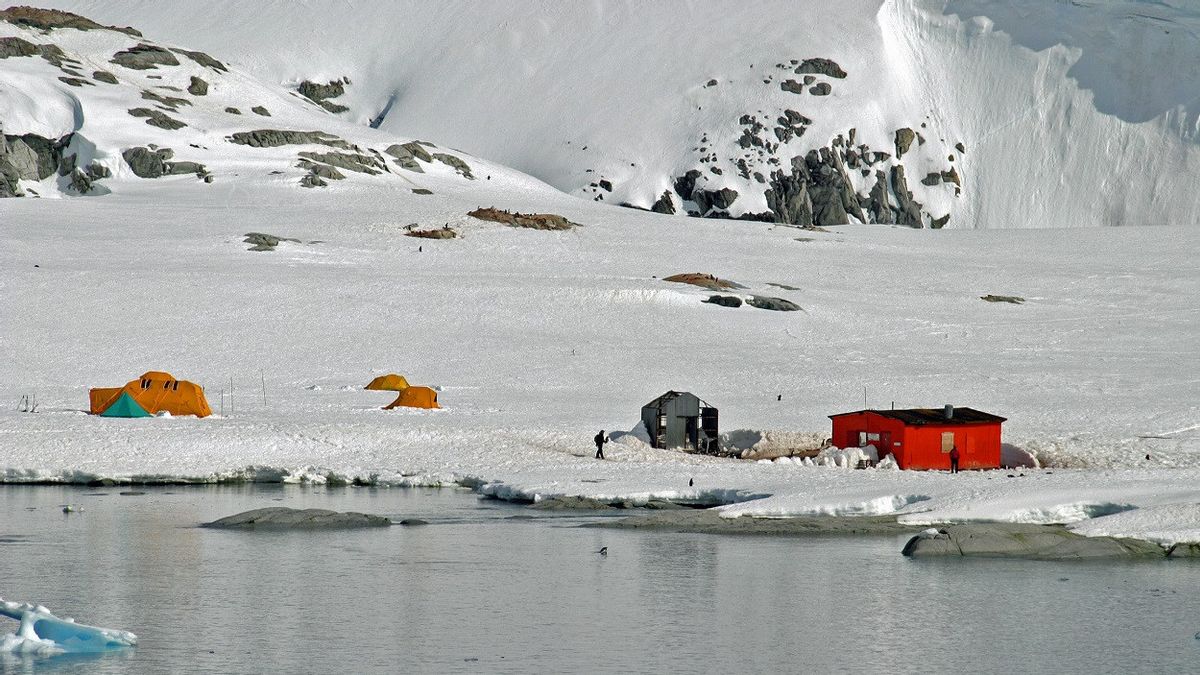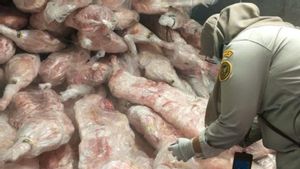JAKARTA - A team of Argentine scientists is using microorganisms native to Antarctica to clean pollution from fuel, potentially also cleaning up plastic in the pristine expanse of the white continent.
Tiny microbes chew up waste, creating a natural cleaning system for pollution caused by diesel, which is used as a source of electricity and heat for a research base in frozen Antarctica.
It is known, this continent is protected by the 1961 Madrid Protocol which stipulates, the continent must be kept in a pristine state.
Research into how microbes can help plastic waste has the potential to pose wider environmental problems.
"This work harnesses the potential of native microorganisms, bacteria and fungi that inhabit Antarctic soil, even when contaminated, and makes these microorganisms feed on hydrocarbons," said Dr. Lucas Ruberto, a biochemist, quoted Reuters on 5 February.
"What for us is a polluter, for them it can be food," continued Dr. Ruberto.
Ruberto traveled in December with other researchers to Carlini, one of Argentina's six permanent bases in Antarctica, undergoing quarantine to help avoid bringing COVID-19 to the continent, where there has been isolated spread of the virus.

The team undertook the bioremediation task, which involves cleaning diesel-affected soil, using native microorganisms and plants, a process that can be used in Australian summers and removes about 60-80 per cent of contaminants.
Ruberto said the team assisted the microbes with nitrogen, moisture and aeration to optimize conditions.
"Basically, with that we get microorganisms to reduce biologically, with very low environmental impact, contaminant levels," he told Reuters via Zoom.
The team has now begun researching how the microbes could help clean up plastic waste elsewhere. Both fuels and plastics are polymers, molecules made up of long chains mainly of carbon and hydrogen.
"This year we joined as one of the project groups to search for native microorganisms capable of degrading plastics," said Nathalie Bernard, a biochemist and specialist in the biodegradation of plastics.
Researchers collected plastic samples from the Antarctic ocean and studied them to see if microorganisms were eating the plastic or simply using it as a raft.
"If we find that it does degrade plastic, the next step is to understand how it does so, so that in the long term we can find ways to unify biotechnological processes for low-temperature polymer degradation," said Bernard.
Ruberto said doing their work in Antarctica's stunning environment helped motivate research.
"Being able to investigate in Antarctica is a dream come true. It is a unique place, protected, with a very special ecosystem," he concluded in amazement.
The English, Chinese, Japanese, Arabic, and French versions are automatically generated by the AI. So there may still be inaccuracies in translating, please always see Indonesian as our main language. (system supported by DigitalSiber.id)












